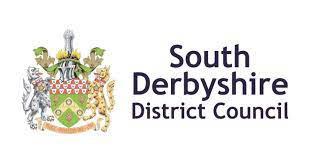The Positively Inclusive Journey




“We believe the work we do around inclusion and equity is not just about a policy but an opportunity to influence attitudes and practices.”
Mamuna Altaf, Trustee





“We believe the work we do around inclusion and equity is not just about a policy but an opportunity to influence attitudes and practices.”
Mamuna Altaf, Trustee
We will always aim to be more inclusive in everything we do. To help us understand how we can do this we offer our staff and our trustees training and opportunities to hear directly from people with ‘different lived experiences’.
Our Inclusivity and Equity Policy will keep changing and evolving as we meet new groups, as a result of our training and levels of self-awareness and as our staff, trustees, participants and partners change and grow. Below are the ways we hope to be even more inclusive in 2023.
To offer a fair chance of being part of our Board we talk to many people we meet in projects about the opportunity because we know they might not value their skills as highly as we do. We consult with young people about we can encourage people under 21 to apply to be a trustee. We support our trustees who may need longer to process the information we give them for meetings (for example people who are neurodiverse) by offering opportunities to meet informally and ask questions about the paperwork beforehand.
“As an Asian woman I feel that people still believe that you are submissive and you disempower yourself by your gender. People assume that in Asian cultures men are in charge and make all the decisions. This is not the case, women have been fighting these stereotypes for centuries both in the UK and from the you the country their parents migrated from”.
Mamuna Altaf, TrusteePeople can sometimes feel they have to talk about themselves using words that other people or organisations have used to describe them. With the Swadlincote Aspergers Society (SAS) we are starting to have conversations about how the members of the group would like or prefer to be described. This may mean someone who has been told they have autism by the Health Services, and who other people describe as ‘neurodivergent’ might choose to describe themselves as being a person who feels ‘Out of Synch’ in society. Everyone is an individual even if they are part of a group or community.
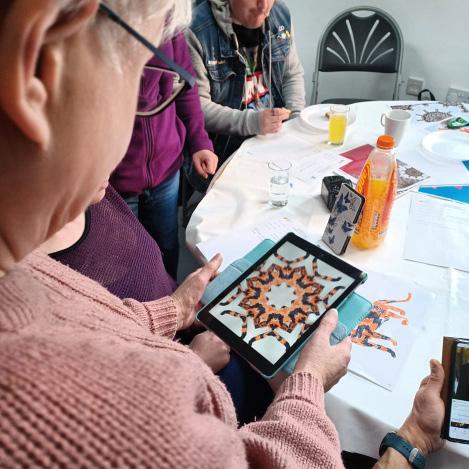
“If you meet one person with autism you have only met one person with autism. This shouldn’t lead you to generalised assumptions about other people with autism”.
Gray Rodgers (SAS)A participant uses an ipad with Kaleidescope app to manipulate handrawn image.
Our new programme of work has led us to work with more people for whom a practicing faith is very important and they would only want to take part in creative activity that respects those beliefs. We are currently evolving our work to make it more inclusive for Muslim communities. We plan to make it clear we are an ‘alcohol free’ organisation, which means we will not meet groups or run activity where there is alcohol. We will move the time of our creative activity from morning to the afternoon for people who observe Ramadan. Making People Express alcohol free also make us more inclusive for people with and/or affected by Alcohol Use Disorder (AUD).
Our Board and staff have talked a lot about ‘unconscious bias’. This is when the experiences a person has growing up and in their life as an adult affects the way they treat others. It can mean that they treat some people unfairly or they favour some people over others, but they don’t know that they are doing it or why.
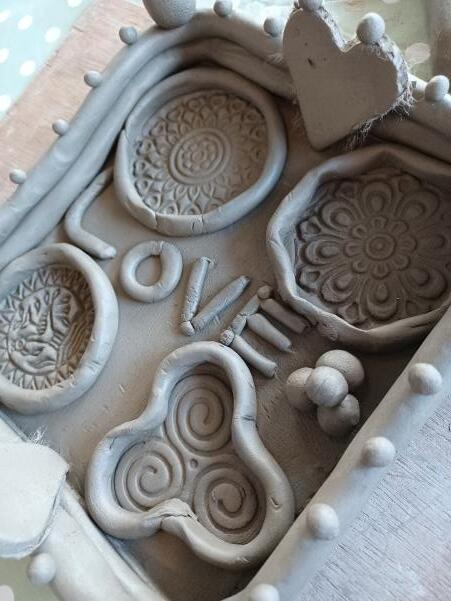
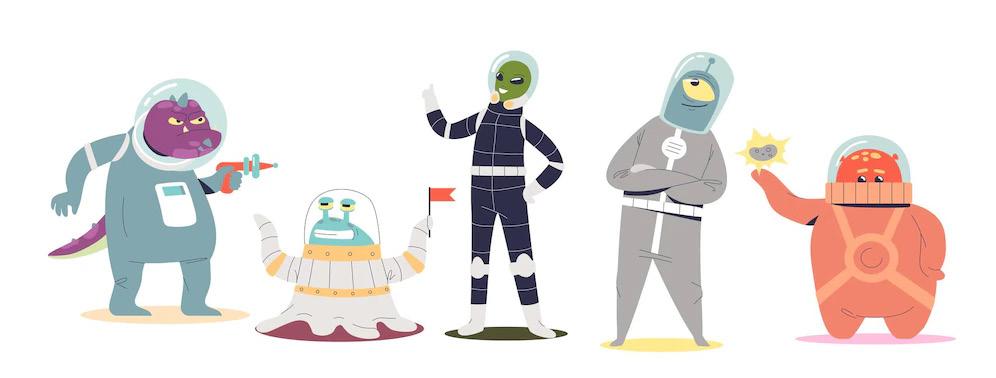
“If you can’t explain it to a 6 year old, you don’t understand it yourself” Albert Einstein
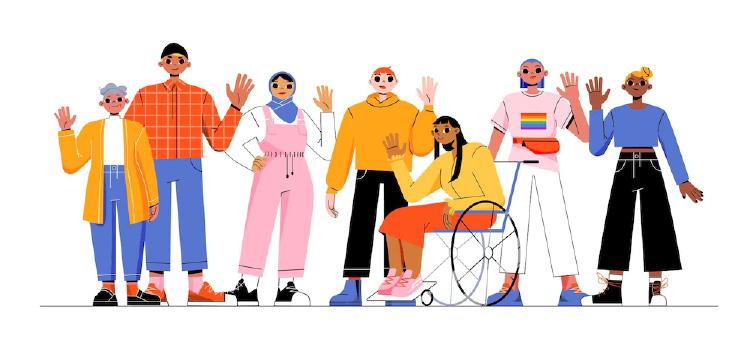

Since 1906 there have been established academic studies that show our brains tell us that we should favour people more who look and sound like us, and we should be careful if they don’t. We see our own identity through the groups of people we feel are the same as us. The ‘social identity theory’ explains why we group people into ‘them and ‘us’ categories and that can lead to us treating people differently.
In order to change the way our brains make us feel we need to recognise when this happens and take steps to change the way we feel. You may also be influenced by social media, what you read in the papers or watch on TV, by what your friends or parents say or because you had bad experience with someone.
The way we are trying to do this at People Express is by making sure there are safe spaces for people to talk about ‘unconscious bias’, by meeting people with as many different life experiences as possible rather than just reading reports or surveys about them and by having a Board and a Staff team made up of people who represent many different sections of society.
Our policy is to create a place where your identity, lifestyle, lived experience and/or *protected characteristic empowers you in your creative journey with us.
*A protected characteristic means you can NOT be treated differently or unfairly compared to everyone else because of your age, gender, race or sexuality, if you have a disability, if you have had gender reassignment, if you are married or in a civil partnership, if you are pregnant or on maternity or because of your religious beliefs. You are protected by Law.
We work with a wide range of unique artists, communities and partner organisations with different lived experiences, cultural backgrounds and across all the protected characteristics. We do this because we feel this will enable everyone to flourish and grow.
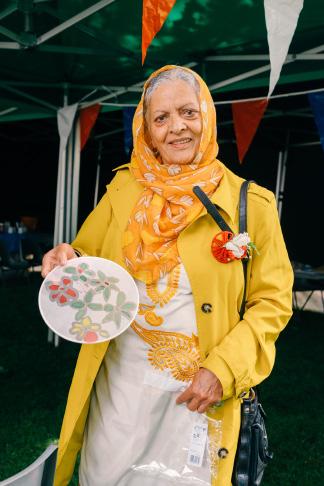
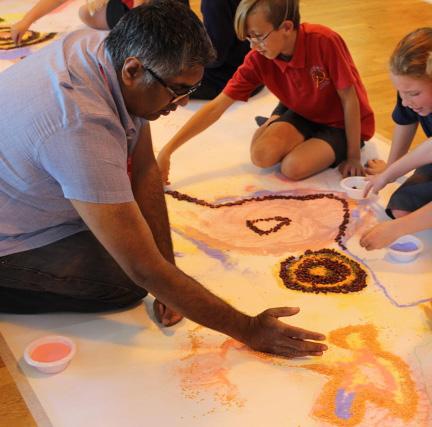
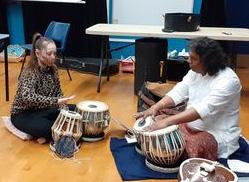
We aim to make sure that the place where we work and the work we do meets the needs of everyone taking part so that everyone feels a sense of ownership and belonging. For example; that the space has wheelchair access, there are no hidden costs when you arrive, you can take part with no previous experience.
South Derbyshire was the district ranked the lowest in England for young people achieving social mobility (better jobs, pay and prospects) through education in the most recent national report published by the Sutton Trust. Swadlincote has neighbourhoods that are ranked some of the highest in the England for economic deprivation (low income families). In England 20% of the population are non-white British, in South Derbyshire it’s 6%.
This means that some young people and adults in our local communities face extra challenges to getting the job they want, to moving on to university and fulfilling their potential because they don’t have the same opportunities. These challenges can also lead to a lack of awareness of and relationships with communities from ethnic minorities and prevent them from getting involved in the arts.
People Express is committed to understanding and achieving ‘equity’ for all communities. This means some of our projects and the way we work is targeted at people and communities that face extra challenges. For example: we run projects with communities in economically deprived areas, we support disabled and neurodiverse adults to set up projects that meet their needs, we provide work placements in the arts for young people, we support University applications, we work with young people in Care and all our work is free to take part in.
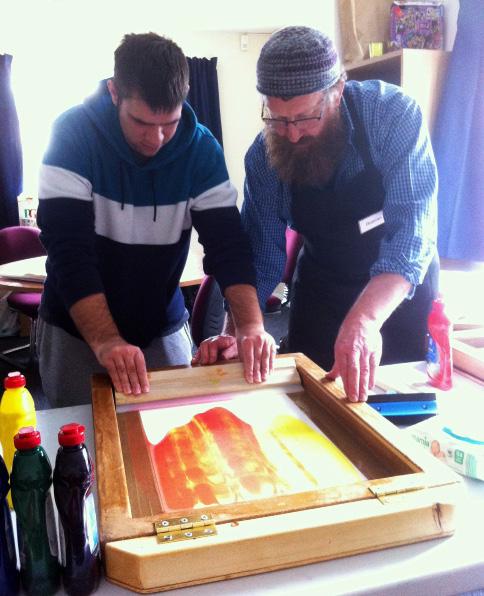
“When I was growing up some boys on our street used to gather in groups and start calling us P*k*s. They would wait there deliberately to try cause trouble for us”.
Mamuna Altaf, TrusteeDiscrimination is when one person or a group of people are treated unfairly because of who they are, where they live or any other personal factors (like their age, disability, gender, race etc).
We take positive actions and deliberately introduce measures to eliminate or reduce discrimination and its affects. We encourage people from particular, demonstrably under-represented, groups to apply for jobs, take on key leadership roles and have their voice effectively heard in decision making.
FILMS, EVENTS AND PERFORMANCES THAT ARE BSL* INTERPRETED (*BRITISH SIGN LANGUAGE) DIVERSITY/ INCLUSIVITY
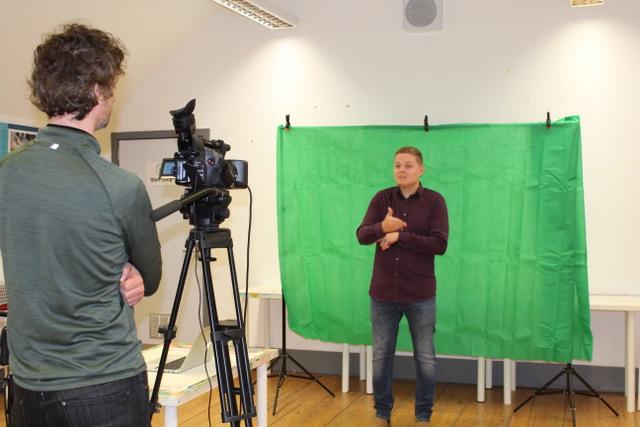
TRANSLATING INTO DIFFERENT LANGUAGES DIVERSITY
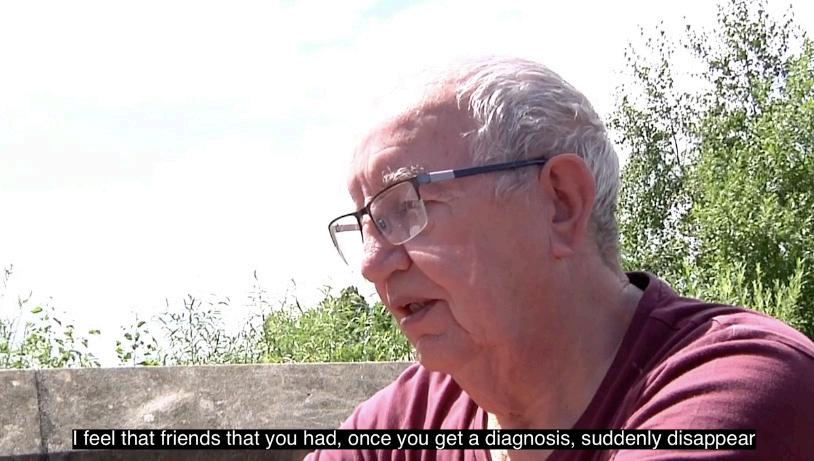

YOUNG PEOPLE CHOOSING THEIR OWN PRONOUNS FOR THE ARTIST TO USE EQUITY
SUBTITLES AND AUDIO DESCRIPTION DIVERSITY
CREATING SAFE SPACES FOR PEOPLE NEW TO THE COUNTRY EQUITY
TAKE PART IN TRAINING WITH DERBYSHIRE LGBT+ EQUITY

WORKING WITH ARTISTS OF COLOUR DIVERSITY/ INCLUSIVITY
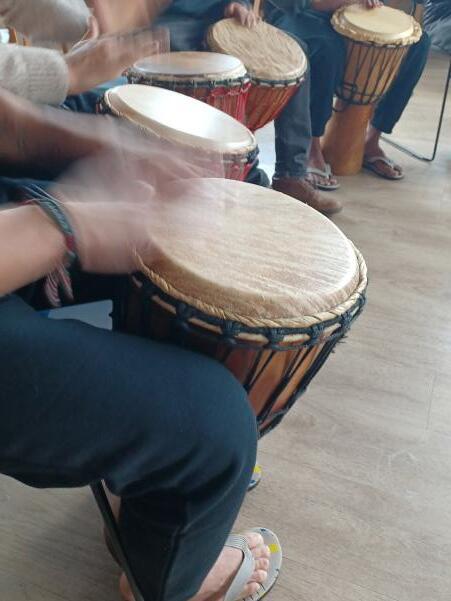
WORKING WITH DISABLED/ NEURODIVERSE ARTISTS DIVERSITY/INCLUSIVITY
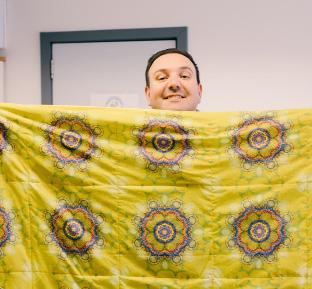
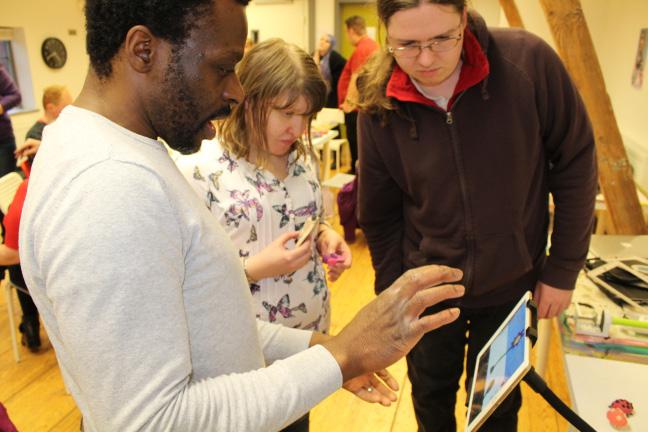 Djembe workshop with people in temporary accomodation who are seeking asylum.
Digital animation workshop with artist Trevor Woolery
Djembe workshop with people in temporary accomodation who are seeking asylum.
Digital animation workshop with artist Trevor Woolery
CREATING SAFE SPACES FOR DIFFERENT GROUPS (TRANSGENDER/ GENDER NON-BINARY)
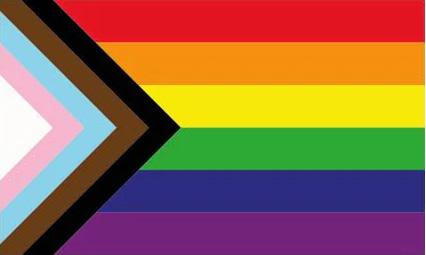
INCLUSIVITY
HAVING BOARD MEMBERS WITH DIFFERENT LIVED EXPERIENCES, FROM LOCAL COMMUNITIES, FROM ACROSS THE PROTECTED CHARACTERISTICS AND FROM DIFFERENT CLASS BACKGROUNDS.
EQUITY
OUIETER SESSIONS FOR PEOPLE/ YOUNG PEOPLE WHO ARE NEURODIVERSE DIVERSITY
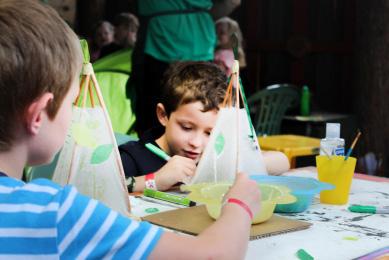
WHEELCHAIR ACCESSIBLE BUILDINGS WITH ACCESSIBLE TOILETS INCLUSIVITY
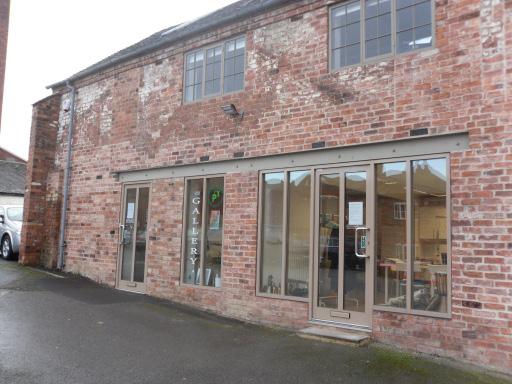
BECOMING A ‘NO ALCOHOL’ ORGANISATION INCLUSIVITY

ACCESSIBLE TOILETS/ CHANGING SPACES AT OUTDOOR EVENTS INCLUSIVITY
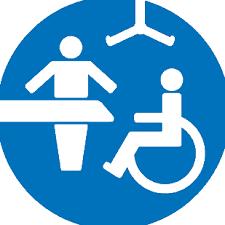
USING A LOCAL VENUE SO PEOPLE CAN GET TO IT WITHOUT A CAR EQUITY
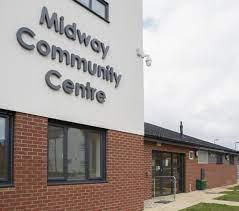
BEING OPEN AND FLEXIBLERUNNING WORKSHOPS ON DATES AND AT TIMES SUITABLE FOR THE GROUP/ COMMUNITY EQUITY
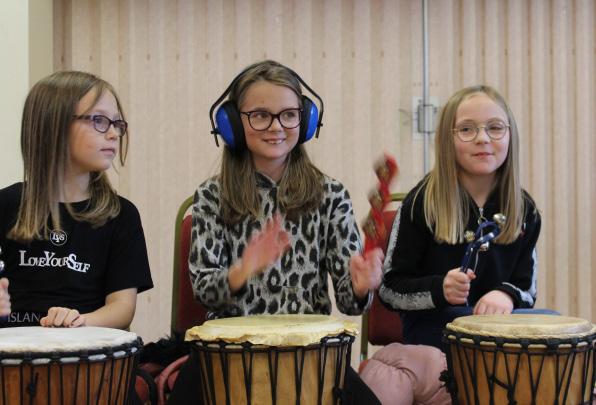
LGBT+ awareness training for staff, Board, freelance workers, volunteers, community groups and partners organisations. This is particularly relevant as increasing numbers of young people are disclosing gender transitioning, our priority is to lead by example, challenge lower than expected levels of awareness and support training/awareness raising opportunities. This work will feed into our Safeguarding Policies and Practice.
-All staff and board take part in LGBT+ awareness training - by March 2024
-All Passport to Music workers and musicians take part in LGBT+ awareness trainingMarch 2024
-4 community groups/ volunteers take part in LGBT+ awareness training - by March 2024
-3 partner organisations take part in LGBT+ awareness training - by March 2024
-Share Derbyshire LGBT+ information on People Express website - by March 2024
-Pronouns will be used by all staff in communications - ongoing
-Pronouns will be a part of introductions during meetings and workshops - ongoing
Our Board and staff team are diverse, our priority is to increase our recruitment of freelance workers with relevant lived experience to our under-represented communities.
-Develop flexible working policy (e.g. supporting time/ space to perform prayers or change working patterns while fasting, for caring responsibilities) - ongoing
-Develop accessible, inclusive, person centred recruitment process- ongoing
The Board is leading work on anti-racist behaviour and unconscious bias, creating safe spaces for uncomfortable, honest conversations that shape our training programmes and Inclusion and Equity Action Plan.
-Register with Race Equality Matters campaign - by September 2023
-Board and Staff Training on Unconcious Bias - November 2023
-Co-design and deliver a project exploring links between self-awareness and imporved mental health - March 2024
The Board recently agreed (January 2023) to make our recruitment procedures more inclusive, valuing lived and self taught experience (relevant to our recruitment of music leaders) and offering a range of ways to apply for work (e.g. video based, pre-interview meetings).
-All job adverts include diversity statement - ongoing
-Explore alternative recruitment - ongoing
We continue to prioritise increasing the representation of people who identify as disabled, neurodivergent and/or experiencing mental ill health within all areas of our work.
-Staff to take part in ‘Creating Easy Read documents’ training - by October 2023.
-Create induction pack for staff, trustees and practitioner introducing the culture of People Express - December 2023
-Create QR codes for display in windows of office and in venues/spaces for activity with access to website and policies. October 2023
Chris Packham
Inside our Autistic Minds
Life is for Living Film made with people living with dementia
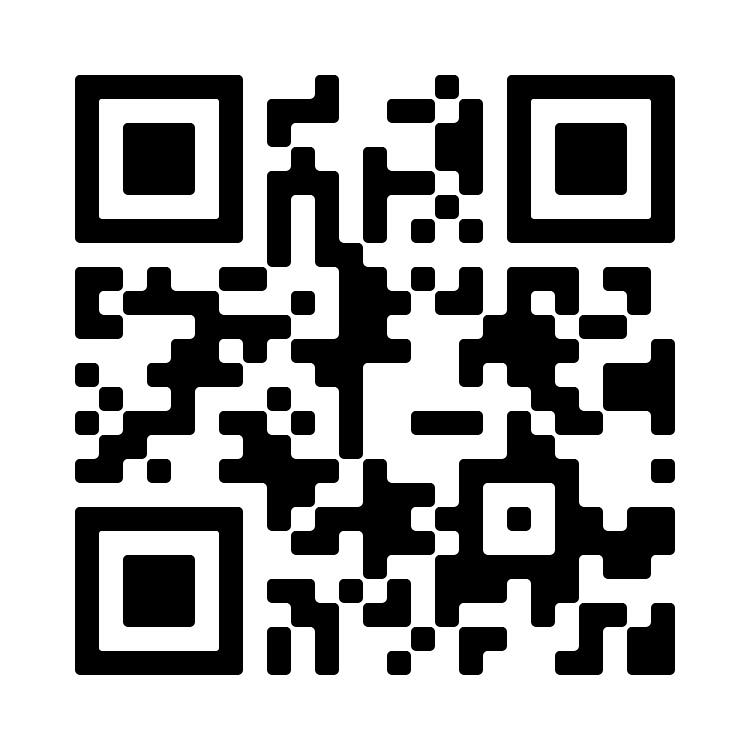
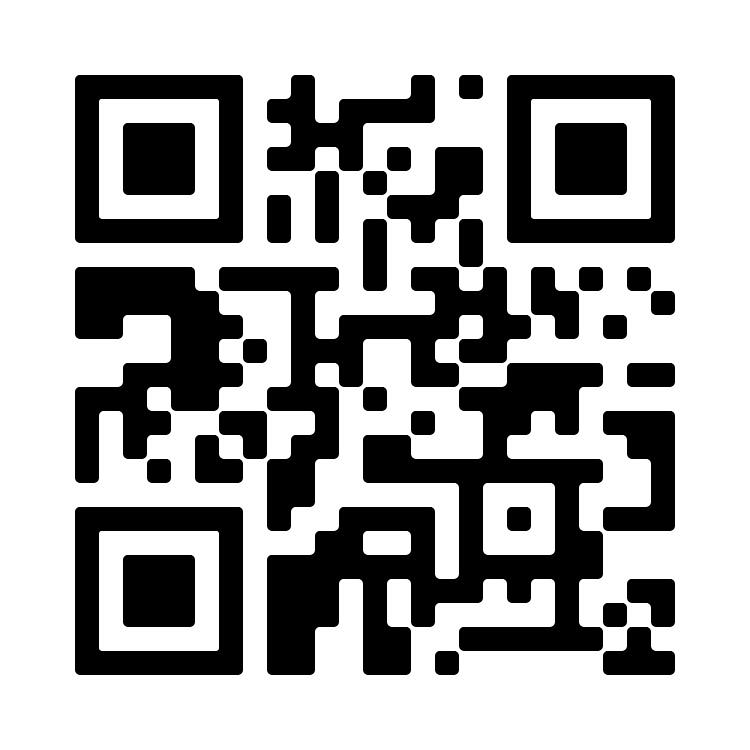
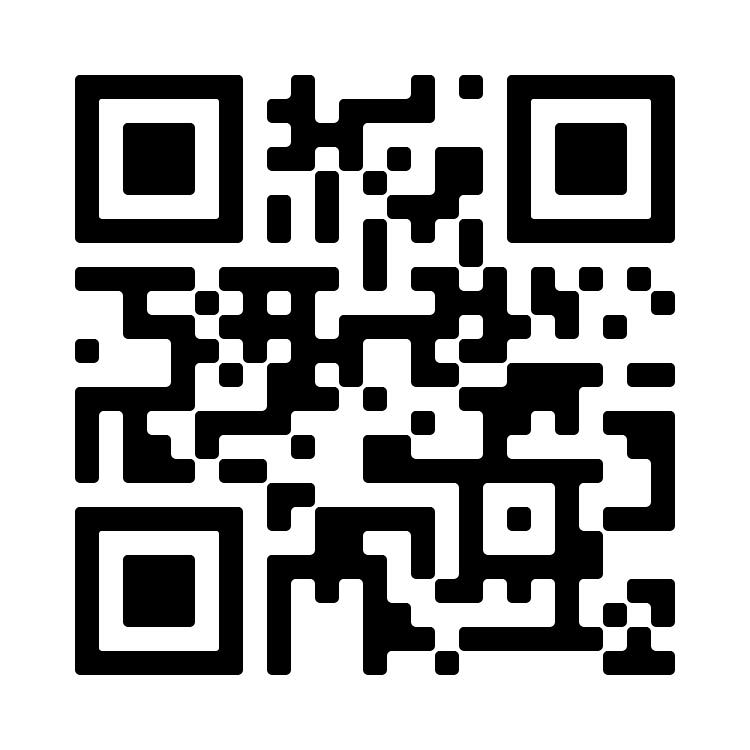

THIS POLICY COVERS ALL AREAS OF OUR WORK INCLUDING THE RECRUITMENT OF STAFF (SEE APPENDIX 1), ARTISTS, VOLUNTEERS AND OUR PARTNERS. IT IS A LIVING DOCUMENT AND WILL BE CONSISTENTLY REFRESHED TO REFLECT OUR ORGANISATION, OUR COMMUNITIES AND THE WIDER SOCIETY.
